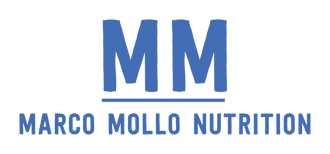 Picking up where I left off yesterday with more lessons I have learned in my first year as a student dietitian. If you have haven’t read part one you can find it here. Our Relationship with Food How we think about food and our relationship with it perhaps does not get talked about enough. It wasn’t until this year I noticed how different our relationships with food can be. From using it as comfort, stressing and worrying about it, seeing certain foods as the enemy, understanding it can fuel performance, different people see food differently and so one major lesson for me is to be more mindful of how I talk about it. The impact that an individual with a respected opinion can have on another person’s thinking, by what they say, is much larger than I thought. Therefore for me to make sure I am working to reduce the wave of negative relationships and disordered eating I need to be mindful of how I talk about food. I have the belief that food should not be the enemy, a tax, a chore, or something we are working against. Food is nourishment, enjoyment, healing, and growth; it is a positive part of our life but for some, this is not the case. It is my opinion that one contributor is the way we talk about food and the culture this has created. So often as soon as I mention the words nutrition, healthy eating and food people directly associate that with
The mental aspect of food is one field of nutrition I have a lot to learn in and so I look forward to sharing that with you all over time. Evidenced-Based Practice You know when you get asked for a suggestion? Like what should someone get when they go to your favourite restaurant for example, and you get a teeny bit nervous after telling them because they might not like what you recommended. Well previously one of the biggest worries for me when providing any sort of nutrition advice was giving advice that was not beneficial or worse yet, did more harm than good. While reading and understanding research was part of my first degree it wasn’t until this year that I got to see what evidenced-based practice looked like. The name mostly gives it away and it ties into what a dietitian does. It is making decisions based on what research is available in conjunction with your professional expertise. As a healthcare professional, with a direct impact on people's health, it is crucial that the advice given is based on evidence. I know for me this provides confidence that what I say and do as an aspiring dietitian is not just sound but the best I can do, as well as minimising the risk of causing harm, putting some of my fears to rest. Going back to our restaurant analogy, not working through evidenced-based practice would be like recommending something that you hadn't tried, but sounded good when you read its description on the menu. You have no evidence that dish tastes good, you're just basing it off what you think it might taste like. There are many nutrition "theories" that sound like they should promote your health because they do this to your metabolism or that to your cells. However, like in the restaurant, sounding good and tasting good are different things, or in the case of nutrition, sounding health promoting and actually promoting health are also different things. In a restaurant if you make the wrong choice or the dish comes out different to what you expected, like when they don't tell you there's coriander in the dish and you really don't like coriander, you might leave dinner a little dissatisfied but no real harm is done. When dealing with health if you start recommending things that sound good as a theory, but when tested don't work out how you thought they would; or you realise you didn't consider or know (surprise coriander) that it would actually lead to these other harmful things, you have much higher stakes than leaving a restaurant dissatisfied. Research does take time and money to conduct so not everything has been thoroughly investigated. This is where clinical judgment comes into things along with looking at what evidence we do have and how that relates to the situation. That is a basic and very rudimentary explanation of evidenced-based practice, I will do a separate post on what research looks like down the track but the crux is basing your actions and recommendations off evidence to make sure it works and that it is safe. Tomorrow I will post my final lessons learned around the current pile of misinformation being spread and something that stuck with me from my first day. Thanks for reading. Marco
0 Comments
Your comment will be posted after it is approved.
Leave a Reply. |
AuthorWrite something about yourself. No need to be fancy, just an overview. Archives
November 2020
Categories |
